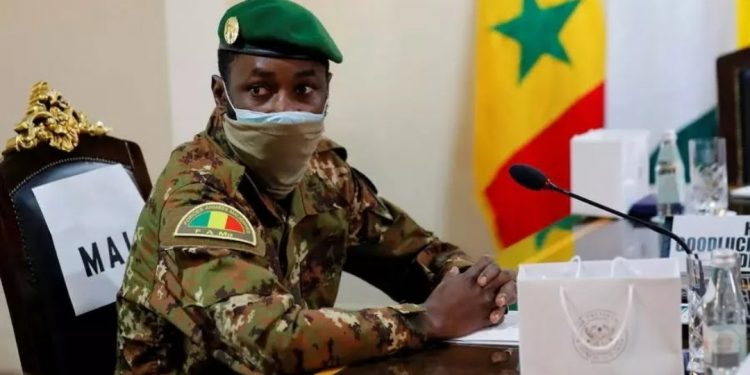By John Ikani
West African leaders on Sunday backed tough new sanctions on Mali including border closures and a trade embargo, saying the military regime’s delays to a return to civilian rule were “totally unacceptable”.
The leaders of the Economic Community of West African States (ECOWAS) also agreed to cut financial aid and freeze Mali’s assets at the Central Bank of West African States, according to a final declaration.
More sanctions include the freeze of assets of the Malian State and the State Enterprises and Parastatals in Commercial Banks, the withdrawal of all ECOWAS Ambassadors in Mali, suspension of all commercial and financial transactions between the ECOWAS Member States and Mali—except essential consumer goods; pharmaceutical products; medical supplies and equipment, including materials for the control of COVID-19 products, and electricity.
The announcement on Sunday followed an extraordinary summit of the leaders of the 15-member body in the Ghanaian capital Accra to discuss a proposal from Mali’s transitional authorities to hold elections in December 2025 instead of next month as originally agreed.
The sanctions came as Nigeria’s Vice President Yemi Osinbajo over the weekend said there is a strong resolve by the ECOWAS and the international community not to accept coups d’etat or any other form of unconstitutional change of government in the region.
Osinbajo spoke with reporters in Accra after participating at an Extraordinary Summit of the ECOWAS Authority of Heads of State and Government.
According to a communique issued after the meeting, the Authority of ECOWAS Heads of State and Government “instructs all Community institutions to take steps to implement these sanctions with immediate effect.”
It also noted that the sanctions will only be gradually lifted “after an acceptable and agreed transition chronogram is finalised and monitored-satisfactory progress is realised in the implementation of the chronogram for the elections.”
In case you missed it
In August 2020, army officers led by Colonel Assimi Goita toppled the elected President Ibrahim Boubacar Keita amid street protests against his unpopular rule.
Under threat of sanctions, Goita promised to restore civilian rule in February 2022 after holding presidential and legislative elections.
But he staged a second coup in May 2021, forcing out an interim civilian government, disrupting the reform timetable, and provoking widespread diplomatic condemnation.
ECOWAS insisted that Mali hold elections in February.
But the junta then said it would set an election date only after holding a nationwide conference, arguing a peaceful after holding a nationwide conference, arguing a peaceful vote was more important than speed.
– ‘It’s a joke’ –
On December 30, after Mali’s reform conference ended, the government suggested a transition period of between six months and five years, starting from January 1 this year.
But ECOWAS mediator Goodluck Jonathan asked the regime to reverse that plan during a visit last week, Mali’s foreign minister said.
On Saturday, the junta submitted a new proposed timetable, Malian state television reported.
The move was intended “to maintain dialogue and good cooperation with ECOWAS”, said Malian Foreign Minister Abdoulaye Diop, without elaborating.
“Mali’s counter-proposal is for a four-year transition,” said a senior official from Ghana, which holds the ECOWAS chair.
The 15-nation bloc has led the push for the former French colony to honor its commitment to stage elections early this year.
The bloc’s push to ensure a return to civilian rule has put its credibility on the line as it seeks to uphold fundamental principles of governance and contain regional instability.




































